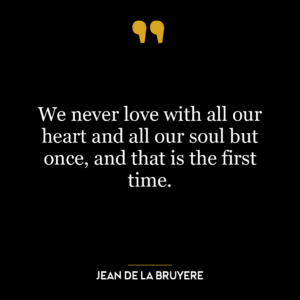This quote suggests that the natural inclination of the human heart is to seek its identity in things other than God. It implies that humans tend to construct their sense of self around worldly aspects such as their roles, achievements, relationships, possessions, or personal attributes. From this perspective, the heart is seen as a builder of identity, and it often looks to earthly matters to provide the foundation for this construction.
However, there’s an underlying assumption in this quote that such an approach may not be the most fulfilling or profound way to understand oneself. The suggestion is that grounding one’s identity in God—or in a spiritual or transcendent reality beyond the material world—might offer a deeper, more meaningful sense of self.
Applying this idea to today’s world, it could be interpreted as a critique of materialism and ego-centric views of success. In a society that often measures worth by external achievements or possessions, this quote challenges us to seek our identity in something beyond these transient things. It encourages us to consider spiritual or ethical values, our connections with others, and our capacity for love and compassion as more essential components of our identity.
In terms of personal development, this quote could serve as a reminder to cultivate inner qualities and spiritual growth rather than focusing solely on external accomplishments. It invites us to explore our relationship with the divine or the transcendent, and to let this relationship guide our understanding of who we are. It suggests that true self-knowledge and fulfillment might be found not in what we have or do, but in our capacity to connect with something greater than ourselves.





